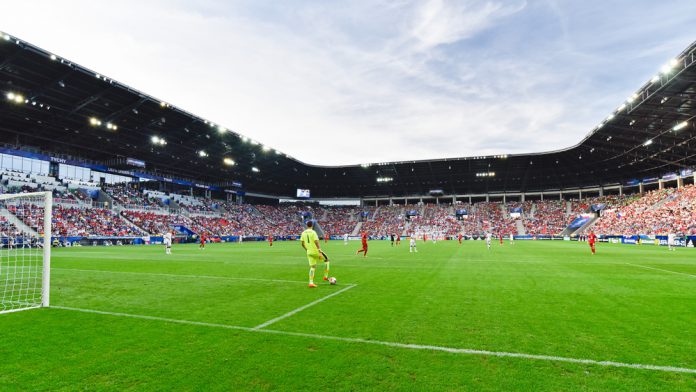As is the case with good WiFi anywhere, there are several positives to having fast, reliable internet connectivity available to sports fans at venues and stadiums around the world. Yet, there are also some possible negative effects to be considered too.
The overriding concern is the effect a strong WiFi service could have on the atmosphere within a stadium. Sport is all about living in the here and now, being present and in the moment. However, smartphones and the age of selfies and vlogging mean that many fans now experience major events through their screens, even if they are pitchside, ringside or courtside.
Countless people are trying their hand at vlogging, where they post videos of their reactions to big moments within a game. Any live coverage of the actual action taking place in front of them would be copyright infringement and the video probably wouldn’t last long on the site, whether it’s YouTube, Twitter or Facebook. Vlogging is legal, though.
Would an improved WiFi service lead to more and more vloggers at a game or a fight? Maybe it’s already reaching its saturation point and the interest in such things will just level off. Yet, fans don’t need to be vlogging to miss out on what’s happening just meters in front of them. Tweeting, checking in, uploading videos to their friends’ WhatsApp groups of ten seconds of live footage they just recorded – it all creates a disconnect between the event and the supporter.
Undoubtedly, the atmosphere is the biggest loser. Pause any footage you have of an English Premier League game or Football League game after a goal is scored – watch the flailing limbs and unbridled joy of the thousands celebrating the moment without phones in their hands. Then look at the few you will see in the picture, standing as still as they can so as not to have a bumpy video account of what it was like to be there. I know which fans I’d want to be sitting beside.
On the plus side, an impeccable WiFi service could have extra earning potential for clubs. Further sponsorship opportunities would be possible if people had to stream an ad on their device before being permitted onto the WiFi. Fans might have to ‘sign up’ to the WiFi, giving their email addresses and consenting to the use of those email addresses on sponsorship partners mailing lists.
Furthermore, as the use of VAR grows the use of in stadium WiFi may become a necessity as officials seek to keep fans in the loop with the decisions and VAR reviews that are going on in the game. However, with the Premier League’s announcement last week that big screens will be utilised to show replays, this could be relatively unnecessary.
Clubs would also be able to interact on a grander scale in real-time with their supporters during a game. However, it would need to be done properly and not in a way that would detract from the atmosphere or encourage fans to be looking at their screens during the game.
























